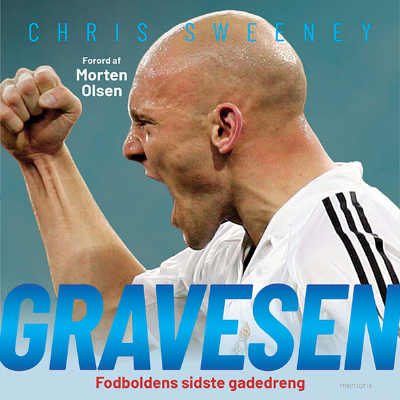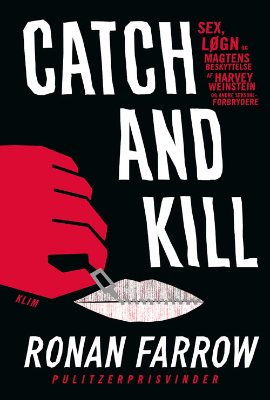
egghead.io developer chats
Podcast af Joel Hooks and John Lindquist
We sit down with developers to talk about the latest and greatest in web development. These conversations will take you deeper into the human side of coding web applications and deliver insight that you might not expect.
Prøv gratis i 7 dage
99,00 kr. / måned efter prøveperiode.Ingen binding.
Alle episoder
77 episoderIn this episode of What's Good, Joel Hooks sits down with Dev Agrawal, a member of the SolidJS core team, to discuss the evolving landscape of web development, AI-assisted coding, and modern framework architecture. EPISODE HIGHLIGHTS SOLIDJS AND MODERN FRAMEWORK ARCHITECTURE * Detailed comparison between SolidJS and React, highlighting key advantages * Deep dive into Suspense implementation and reactive state management * Overview of Dev's work on cross-boundary reactivity in SolidJS * Discussion of his $7,000 Solid Hack competition winning project * Exploration of stateful server components with WebSocket updates AI-ASSISTED DEVELOPMENT * Discussion of AI agents managing tasks and grooming backlogs during meetings * Exploration of using AI tools like Cursor for development * Joel shares his experience building JoelFit [https://joelfit.app], a full-stack application developed primarily through AI prompting * Analysis of AI's current limitations and the importance of human guidance in development EMERGING TECHNOLOGIES AND TRENDS * Analysis of React Server Components and their impact on the ecosystem * Discussion of Cloudflare Durable Objects as individual compute units * Introduction to Zero Sync and its implications for local-first applications * Exploration of incremental view maintenance and its performance benefits * Overview of Vite 6's improvements for server components and meta frameworks FEATURED PROJECTS AND RESOURCES * JoelFit (code) [https://github.com/joelhooks/joelfit] - Joel's AI-assisted development project on github * Solid Suspense Demo v2 [https://github.com/devagrawal09/solid-suspense-demo-v2] - Dev's demo showcasing Solid's advantages * Building Asynchronous UIs Without the Hassle [https://youtube.com/watch?v=pX5r_jTLbvw] - Dev's conference talk KEY TAKEAWAYS * SolidJS offers built-in support for async operations without React's bailout issues * The entire Solid ecosystem was built with suspense support from v1 * Durable Objects are often misunderstood - they're individual compute units rather than just shared state * Zero Sync's incremental view maintenance pairs particularly well with Solid's architecture * React has moved away from traditional SPA towards full-stack architecture * Framework choices continue to evolve with different approaches to reactivity and state management CONNECT WITH DEV * Watch Dev's talk on Building Asynchronous UIs Without the Hassle [https://youtube.com/watch?v=pX5r_jTLbvw] * Check out his Solid Suspense Demo [https://github.com/devagrawal09/solid-suspense-demo-v2] ---------------------------------------- Note: This episode was recorded in January 2024 and discusses emerging technologies and trends in web development.
Dax Raad, known for his strong opinions on Twitter, sat down for a chat about web dev, career moves, and building cool stuff. He's not afraid to throw some heat at popular tools like Next.js [https://nextjs.org/], though he still helps people use it. Dax is particularly excited about local-first development, which he thinks isn't getting enough attention. He argues that sometimes the best web dev move is to step away from web dev entirely and explore other areas of programming. When it comes to career growth, Dax encourages developers to think beyond the "web dev" label and see themselves as programmers capable of tackling any challenge. He advocates for trying out weird stuff and learning unusual languages, as these experiences can lead to unexpected opportunities. Taking smart risks in your career can open doors to awesome possibilities. In the business world, Dax is a fan of making "asymmetric bets" - moves with low downside but huge potential upside. He applies this philosophy to his work on SST [https://sst.dev/], reasoning that even if it fails, he'll walk away with valuable experience. He also emphasizes the importance of resisting quick payouts in favor of potentially bigger wins down the road. Looking to the future of tech, Dax is betting on local-first development. He sees potential in getting in early on emerging technologies like Solid.js [https://www.solidjs.com/]. Building in public and making connections in new tech communities can pay off in unexpected ways. Dax also challenges the notion of constant hyper-productivity in tech. He suggests balancing focused work with time for exploration and learning. Sometimes, he points out, what seems like a "dumb" choice (like learning a niche language) can turn out to be a smart career move in the long run. GOOD STUFF MENTIONED * Next.js [https://nextjs.org/] * Vercel [https://vercel.com/] * SST [https://sst.dev/] * Elixir [https://elixir-lang.org/] * Solid.js [https://www.solidjs.com/] * RepliCache [https://replicache.dev/] * Linear [https://linear.app/] * Remix [https://remix.run/] * Shopify [https://www.shopify.com/] * React [https://react.dev/]
Dev and Joel discuss React Miami conference, praising its fun atmosphere and location. They chat about React Server Components, with Dev sharing his experience building a mini framework. They talk about Vinxi, Nitro, and the unjs ecosystem as tools for creating custom frameworks. The conversation touches on Vue's popularity outside web dev circles and non-web dev conferences. They discuss the benefits of TypeScript and strongly-typed APIs. Dev mentions his upcoming talk on durable objects at a conference in Dallas [https://x.com/DThompsonDev/status/1829674506237194456]. They end by discussing WebSockets, PartyKit, and platform-specific frameworks. WHAT'S GOOD? -React Miami Conference [https://www.reactmiami.com/] * Brenley Dueck's blog post on Simple RSC with Vinxi: [https://www.brenelz.com/posts/simple-rsc-with-vinxi/] * Vinxi [https://github.com/nksaraf/vinxi] * Nitro [https://nitro.unjs.io/guide/configuration] * unjs ecosystem [https://unjs.io/] * Solid Start [https://start.solidjs.com/] * TanStack Router [https://tanstack.com/router/latest] * PartyKit [https://github.com/partykit/partykit] * Durable Objects (Cloudflare) [https://developers.cloudflare.com/durable-objects/] * Flightcontrol [https://www.flightcontrol.dev/] * SST [https://sst.dev/] * OpenNext [https://open-next.js.org/]
Alex took spent the last year and a half creating his course, The Ultimate Guide to Understanding DOM Events, at egghead. Finding the time to work on a side-project like this isn't easy, and it requires one to examine their current priorities in life. Do they want to be a rockstar developer? Or do you want to have a lot of free time to spend with your family? No matter what sacrifices have to be made. But the best way to handle it is to have candid discussions with the people around you who will be affected the most by these sacrifices. Alex worked it out so that he'd work on his course one day a week. Despite the cost in time, side-projects are important to Alex. He says that he wouldn't be where he is now in his career without them. They enabled him to grow as a software engineer and to learn things that he wouldn't be able to during his day job. Because of this, he was able to get a more complete picture of how all the pieces fit together, which made him a better dev. So remember, really be careful about what you are committing yourself to when you take on a large project. RESOURCES * Master DOM Events [https://alexreardon.dev/master-dom-events] ALEX REARDON * Twitter [https://twitter.com/alexandereardon] * Website [https://alexreardon.dev/] TAYLOR BELL * Twitter [https://twitter.com/taylorbell] * Website [https://www.taylorbell.com/]
Ryan’s background as a musician taught him many lessons that would eventually apply to his current career. As a musician, he learned about composition, sales, and even programming so he could build his band a website. Ryan also had an actual sales job where he learned that you can do something so well that you’ll be unable to do it anymore. In sales that meant being good at generating leads which lead to a lot of clients which lead to ceasing to generate leads. But, that eventually lead to you have no clients because you let your stream of leads dry up. It’s easy to become so narrowly focused on what’s in front of you that you get blindsided by what’s coming down the pipeline 6 months from now. React changed the front-end landscape. We went from having a mutation-based approach to a functional approach. But, React has made it so easy to write code that we are forgetting our fundamentals. React websites are becoming bloated. Remix’s goal is to bring back the Web 1.0 ways of doing things that lead to lean, performant websites. It’s Web 1.0 that is progressively enhanced with React and React Router. “The technology that sticks, and wins, is the technology that can sneak its way into your existing stack because no one wants to rewrite!” Remix is built on this philosophy, allowing you to incrementally incorporate Remix into your existing application. —- RESOURCES * Michael Jackson’s YouTube video on component composition [https://youtu.be/3XaXKiXtNjw] * Remix [https://remix.run/] RYAN FLORENCE * Twitter [https://twitter.com/ryanflorence?s=21] * Website [https://ryanflorence.com/] JOEL HOOKS * Twitter [https://twitter.com/jhooks?s=21] * Website [https://joelhooks.com/]
Prøv gratis i 7 dage
99,00 kr. / måned efter prøveperiode.Ingen binding.
Eksklusive podcasts
Uden reklamer
Gratis podcasts
Lydbøger
20 timer / måned

































